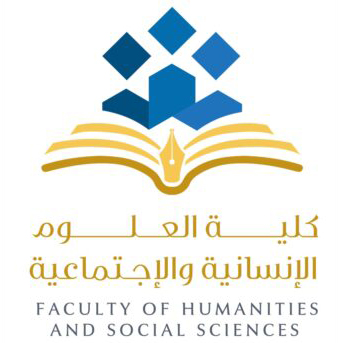LMD System User Guide and Regulatory Texts
Download LMD System User Guide
Regulatory Texts:
- Decision No. 711 dated November 3, 2011, defining the common rules for the pedagogical organization and management of university studies for obtaining the Licence and Master degrees.
- Decision No. 712 dated November 3, 2011, containing the modalities for evaluation, progression, and orientation in the study cycles for obtaining the Licence and Master degrees.
- Decision No. 713 dated November 3, 2011, defining the composition and functioning of the Supervision Committee.
- Decision No. 714 dated November 3, 2011, containing the modalities for student ranking.
- Decision No. 451 dated December 9, 2012, defining the characteristics related to the temporary certificate of success in the Licence and Master training cycles.
- Decision No. 452 dated December 9, 2012, defining the characteristics related to the transcript (record of grades) in the Licence and Master study cycles.
- Decision No. 453 dated December 9, 2012, defining the characteristics related to the descriptive document accompanying the Licence and Master degrees (Diploma Supplement).
- Decision No. 992 dated August 1, 2022, defining the modalities for registration and re-registration for training leading to Licence, Master, State Engineer, and Architect degrees, as well as the modalities for their organization, evaluation, and progression.
- Decision No. 993 dated August 2, 2022, defining the composition, organization, and functioning of the National Habilitation Committee.
- Decision No. 994 dated August 2, 2022, defining the data and characteristics of Higher Education diplomas.
- Decision No. 998 dated August 2, 2022, defining the conditions and modalities for orientation and registration in university studies for the Master’s degree.
- Decision No. 059 dated January 15, 2023, amending the appendix of Decision No. 1398 dated October 22, 2022, which defines the teaching program for the common core leading to the State Engineer degree in the “Science and Technology” field.
- Decision No. 060 dated January 15, 2023, amending the appendix of Decision No. 1399 dated October 22, 2022, which defines the teaching program for the common core leading to the State Engineer degree in the “Mathematics and Computer Science” field, “Computer Science” specialization.
- Decision No. 171 dated February 9, 2023, defining the modalities for registration and re-registration for training leading to Licence, Master, State Engineer, and Architect degrees, as well as the modalities for their organization, evaluation, and progression.
- Decision No. 396 dated March 21, 2023, defining the conditions for enrollment and the modalities for organizing and evaluating studies in distance learning for obtaining the Licence, Master, State Engineer, and Architect degrees.
- Decision No. 397 dated March 21, 2023, amending and supplementing Decision No. 171 dated February 9, 2023, which defines the modalities for registration and re-registration for training leading to Licence, Master, State Engineer, and Architect degrees, as well as the modalities for their organization, evaluation, and progression.
🌟 Objectives of the LMD System
The objectives of this system include the following:
- Organizing the training offer in the form of study cycles, allowing the student to benefit from support and advice from a reference tutor (supervising professor).
- Improving pedagogical quality, information, orientation, and student support.
- Developing the professionalization of higher education.
- Enhancing the learning of cross-curricular skills (mastery of foreign languages, computer tools, and the Internet).
- Benefiting from the exchange and recognition of diplomas at the international level, giving higher education degrees global value.
🎓 The Three Degrees (L-M-D)
This is a system adopted by developed countries such as France, the United States, and others. The LMD system is fundamentally based on a specific program, the semester program, and is currently being implemented in many Arab and European countries. This is in response to the need to improve the quality of higher education and give its degrees global value.
The LMD (Licence, Master, Doctorate) system is based on three training phases, each concluding with a university degree:
- First Phase (Licence): Baccalaureate + 3 years. Concludes with a Licence degree after 180 credits, with an average of 30 credits per semester.
- Second Phase (Master): Baccalaureate + 5 years. Concludes with a Master degree after 120 credits, with an average of 30 credits per semester.
- Third Phase (Doctorate): Baccalaureate + 8 years. Concludes with a Doctorate degree after three years of study.
1. The Licence Degree (Licence)
There are two types of Licence degrees:
- Academic Stream: Concludes with an Academic Licence degree and allows the holder to continue studies (to Master’s level).
- Professional Stream: Concludes with a Professional Licence degree, enabling the holder to directly integrate into the job market.
Structure of Training Pathways for the Licence Degree:
- First Cycle (Tor Awwal): Extends for a maximum of two semesters, focused on acclimatization with the university and discovery of specializations.
- Second Cycle (Tor Thani): Extends for at least two semesters, focused on deepening knowledge and progressive orientation.
- Third Cycle (Tor Thalith): The specialization cycle, enabling the student to acquire knowledge and competencies in the chosen specialization.
2. The Master Degree (Master)
This training lasts two years and is accessible to every holder of an “Academic” Licence degree who meets the admission requirements. Holders of a Professional Licence are not excluded from participation; they can return to the university after a short period spent in the working world.
This training is offered in two different specializations:
- Professional Master: Characterized by obtaining broader training in a specific field, and its orientation remains consistently professional.
- Academic Master: Characterized by preparing the student for scientific research and qualifying them for research activity in the university or economic sectors.
3. The Doctorate Degree (Doctorat)
The minimum duration of this training is 6 semesters (three years). It involves deepening knowledge in the specialization and research training for research (developing readiness to practice research and the meaning of social work/engagement).

